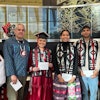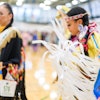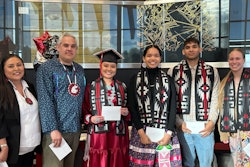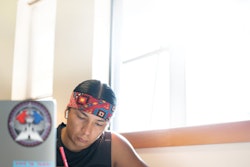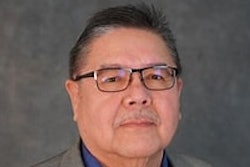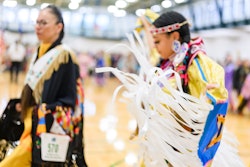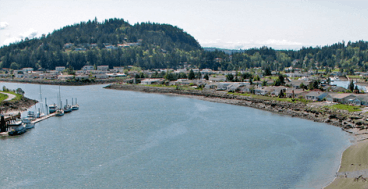
“You used to be able to predict things about the weather, but you can’t anymore,” says Linda Kruger, a research assistant at the Pacific Northwest Research Station, who has been interviewing several tribal communities about climate change issues in the last few months. “Berry crops are drying out, and there are fewer salmon in the streams because the water level has decreased,” notes Kruger of observances in Alaska.
Indeed, Dr. Jamie Donatuto, an environmental health analyst at the Swinomish Indian Tribal Community’s Office of Planning, says more American Indian tribes are becoming active in handling climate change issues. In conjunction with the University of Oregon, PNW is helping communities better understand these issues and providing resources through the Tribal Climate Change Project, a unique initiative that was established in 2009. There are many resources out there, says Kruger, but what makes the Tribal Climate Change Project different is that it is about tribes and climate change while bringing together representatives from the government and native communities.
“There’s a real strong connection between trying to understand tribal needs and lessons learned from what the tribes are doing and connecting that with government agency programs,” says Kruger, whose PNW provided initial funding and has recently recommitted to keeping the program going for two more years with a $50,000 grant.
Specifically, the Tribal Climate Change Program understands the needs and opportunities for tribes in dealing with climate change issues, examines government-to-government relationships in this context and explores the role of traditional knowledge in climate change study, assessments and plans, explains Kathy Lynn, an adjunct researcher in the school’s Environmental Studies Program and coordinator of the project.
“I think it provides an opportunity for a facilitated conversation,” says Kruger. “It makes a connection between people and government agency people who are doing research or have management programs.”
A key part of the initiative is information sharing, says Lynn. A climate change network that offers news on grants and the development of project resources, a listing of tribal profiles delineating more than a dozen tribal efforts that are underway and the development of resources and publications for tribes all fall into this category of serving as a forum. The Tribal Climate Change Project’s annual conference, tentatively scheduled for next fall, has also been a facilitator in providing information and exchange. Students, faculty and tribal community members congregate at a keynote speech, poster presentations, discussions and many other activities as part of the University of Oregon’s Climate Change Research Symposium.
